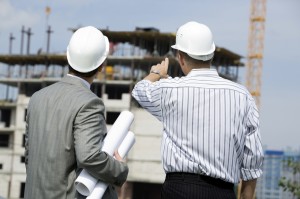 Structural engineers are responsible for designing, analyzing, and overseeing the construction of buildings, bridges, and other structures. However, finding the right engineer for your project can be challenging, especially when working on a large-scale project.
Structural engineers are responsible for designing, analyzing, and overseeing the construction of buildings, bridges, and other structures. However, finding the right engineer for your project can be challenging, especially when working on a large-scale project.
Today, we’re going to cover everything you need to know about finding the right structural engineer for your own building project. From qualifications to selecting a candidate, we will take you through the entire process.
Qualifications to Look for in a Structural Engineer
When hiring a structural engineer, you want to make sure they possess the necessary qualifications to accurately, safely and faithfully execute the full scope of the project. At the most basic level, a structural engineer should have a degree in civil or structural engineering from an accredited institution.
It is also wise to check if they hold other advanced certifications from professional organizations such as the National Council of Structural Engineers Associations (NCSEA) or the American Society of Civil Engineers (ASCE). These organizations set the standards for the industry and ensure that the engineer has the knowledge and skills necessary for working in the profession.
Additionally, check if the engineer is licensed to practice in your state. A licensed engineer has passed the relevant exams and is authorized to sign and stamp plans and calculations. The license verification process can vary between states, so utilize the portal offered by the state your project is located in.
Experience
Experience is another critical factor to account for when hiring a structural engineer. Look for someone who has relevant experience working on projects similar to yours.
An experienced engineer will have a better understanding of the materials and techniques required to make your project a success. They will have also developed relationships with local building officials and have a sound understanding of local codes and regulations.
To vet someone’s experience, ask them to share specific examples from their portfolio that are most relevant to your own project. You can examine their past work and determine if their experience will prove suitable for your goals.
Communication Skills
A highly qualified structural engineer should have excellent written and verbal communication skills. They should be proficient in explaining technical information to non-technical people in a way that they can understand.
The engineer should also listen actively to your needs and concerns and be responsive to your questions. Good communication skills are especially important when working alongside architects, contractors, and other professionals involved in your project.
Choose someone that feels like an extension of your existing team. Do you believe they will collaborate well with your own employees and any other contractors involved? If not, you may want to continue your search.
Technical Expertise
A qualified engineer should be familiar with the latest technologies, materials, and construction techniques. It is also essential to check if the engineer has expertise directly related to working with the type of structure you are building.
For example, an engineer who specializes in commercial construction may not have the same experience as someone who has primarily worked in residential construction. While there may be some general similarities in scope, other factors like materials and the scale of the project could highlight some critical differences.
Evaluating Project Costs
The costs associated with hiring a structural engineer largely depend on the project’s complexity and scope. Ask a candidate for a detailed estimate that outlines all costs associated with the project, including any additional fees that may arise.
Choosing the Right Structural Engineer
As you’re reviewing options for potential engineers to hire, take into account all of the qualifications above. Beyond these, there are also some “soft skills” that you should also factor into your decision-making process regarding whether or not to hire a specific contractor. The three most important of these include:
Collaboration with Other Professionals
A structural engineer works closely with architects, contractors, and other professionals involved in your project. They collaborate with the larger team to ensure that the structure meets design and safety standards.
A good engineer should be able to work well with others, communicate effectively, and provide guidance and advice throughout the construction process. It is essential to choose an engineer who is comfortable working in a team environment and can maintain positive working relationships with other professionals.
Safety and Code Compliance
Ensuring safety and code compliance is a crucial responsibility of any structural engineer. They should demonstrate a thorough understanding of local building codes and regulations and be able to design structures that meet these standards.
Project Management
Project management is another essential aspect of hiring a structural engineer. They should be able to manage the project efficiently while continuously ensuring that it stays on schedule and within budget. Look for someone that possesses and displays excellent organizational skills and an ability to oversee multiple aspects of the project simultaneously.
Additionally, ask potential engineers that you are considering hiring how they handle any unexpected issues that could arise. Provide theoretical examples of problems that could occur and ask them if they have any personal stories where they had to develop solutions in real time during past projects.
Hire a Team of Structural Engineers in Charlotte, NC
At Structural Innovations, we are committed to providing the most comprehensive range of structural engineering services to construction professionals in the Charlotte metro area. We offer commercial and residential structural design, seismic design, peer review, and structural inspection to help ensure that your project is completed soundly and in complete compliance with local regulations.
To learn more about how we can assist you with your upcoming project, contact us today.

